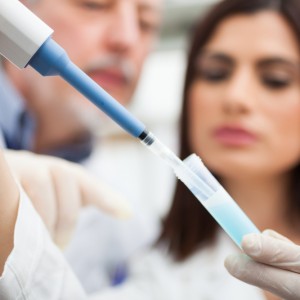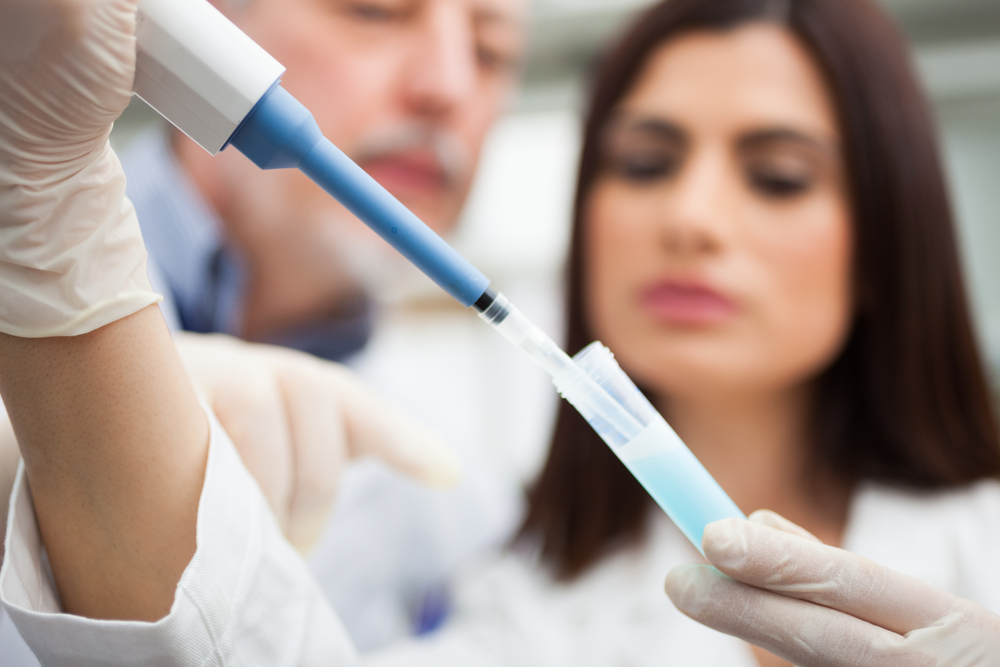 Recent results from a clinical study (ARMOR2) assessing the anti-cancer drug galeterone, revealed it could successfully lower prostate-specific antigen (PSA) levels in patients who suffer from castration-resistant prostate cancer (CRPC).
Recent results from a clinical study (ARMOR2) assessing the anti-cancer drug galeterone, revealed it could successfully lower prostate-specific antigen (PSA) levels in patients who suffer from castration-resistant prostate cancer (CRPC).
The data was presented by associate professor Mary-Ellen Taplin, of the Dana-Farber Cancer Institute during the 26th EORTC-NCI-AACR Symposium on Molecular Targets and Cancer Therapeutics in Barcelona, Spain.
“Recent data have shown that a variant of the androgen receptor called AR-V7, found in tumour cells circulating in the blood of patients with metastatic CRPC, predicted resistance to treatment with enzalutamide and abiraterone,” Prof. Taplin stated. “Indeed, we believe AR-V7 and other, related variants are a mechanism of resistance in this disease and patients who have them may have a poorer prognosis.”
Galeterone has the capacity to inhibit the androgen receptor signaling pathways, which are directly linked to CRPC progression.
During this Phase II clinical study, different clinical centers in the U.S. and Canada enrolled men diagnosed with CRPC to receive 2,550mg of galeterone orally once a day: 22 men with CRPC without metastasis or previous treatment; 39 men with metastatic CRPC and no previous treatment with abiraterone or enzalutamide; 37 with metastatic CRPC and not responsive to abiraterone; and 9 men with metastatic CRPC and not responsive to enzalutamide.
The research team assessed PSA responses to galeterone, the amount of circulating tumor cells, and if these cells had the AR-V7 variant, which occurs when an androgen receptor loses its C-terminal end, correlating with the presence of androgen receptor variants.
“We found that galeterone resulted in meaningful PSA declines in patients with metastatic CRPC, and imaging showed that the disease was stable or had responded to the drug,” Prof. Taplin explained. “Galeterone was safe, without any unexpected toxicity. We also detected circulating tumour cells, which were found in higher numbers in patients who had received more prior therapies. In a subset of seven patients who had circulating tumour cells with a higher ratio of N-terminal compared to C-terminal androgen receptors and so were likely to have the AR-V7 variant, six had favourable PSA responses to galeterone. This suggests that the presence of AR-V7 in circulating tumour cells does not preclude response to galeterone as has been shown to be the case for abiraterone and enzalutamide.”
Researchers observed that in the group of men who had non-metastatic and metastatic disease and had not received previous treatment, PSA levels decreased by 30% or more in 83% of patients. Of these, 70% had PSA declines of 50% or more. In the group of patients resistant to abiraterone and patients resistant to enzalutamide, 35% and 56% showed a decline in PSA levels, respectively.
Furthermore, the presence of circulating tumor cells where higher (90%) in patients who suffered from a more advanced form of the disease and had failed previous therapies.
The team wants to test galeterone in a Phase III trial in patients diagnosed with metastatic CRPC carrying the AR-V7 variant, receiving either galeterone or enzalutamide.
“This phase III trial will be noteworthy for being the first prostate cancer trial to assess a biomarker, namely AR-V7 in circulating tumour cells, as a predictor of response at the same time as testing the efficacy of the drug,” Prof Taplin concluded.

